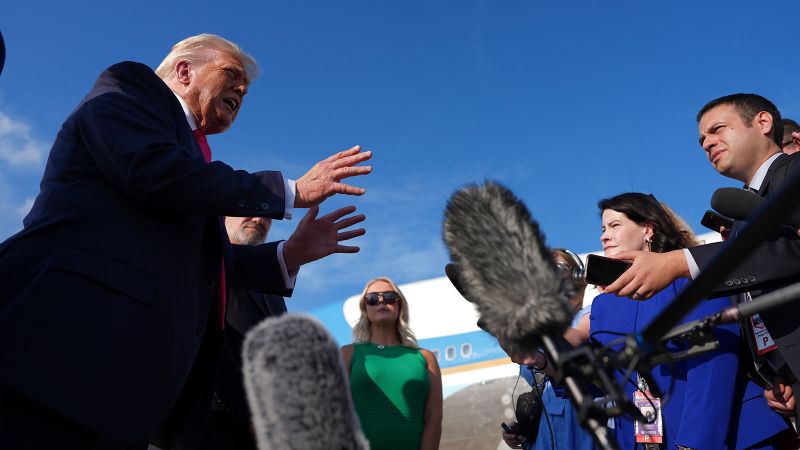The political landscape is tumultuous and rife with speculation, especially amidst the ongoing scrutiny surrounding former President Donald Trump’s administration and its alleged mismanagement of sensitive files related to Jeffrey Epstein. Many political analysts are eager to understand if this latest controversy will serve as the catalyst that finally turns Trump’s unwavering base against him. Despite a litany of past controversies, including the violent insurrection at the United States Capitol and numerous criminal indictments, Trump’s supporters have remained remarkably loyal. Yet the question now emerges: will the Epstein affair deepen the existing malaise among Trump’s supporters?
To assess Trump’s political standing accurately, it is essential to recognize that symptoms of discontent among Republican voters have been evident long before the Epstein issue resurfaced. While Trump’s overall approval ratings among Republicans have appeared robust, there is a concerning undercurrent of disapproval regarding his handling of various issues. Notably, many of his early actions have garnered a lackluster response from notable segments of the GOP. Furthermore, even widely acclaimed policies that ostensibly receive the backing of a broad Republican audience seem to support neither enthusiasm nor loyalty but rather reflect a tenuous allegiance that may falter under stress.
In recent weeks, Trump’s policy decisions—some of which diverge sharply from the priorities of key segments of his “Make America Great Again” (MAGA) base—have contributed to this growing discontent. Such moves include military interventions in the Middle East, hefty spending proposals, and a continued commitment to funneling arms to Ukraine, actions that sit uneasily with many supporters who expected a more isolationist approach. Timing is key, and placing the Epstein controversy into this ongoing narrative does not bode well for Trump.
Recent polling data released by CNN unveils a worrying trend among Trump’s supporters. The survey highlights a record-low approval rating of 21% among Americans who expressed strong support for Trump, marking the lowest figure recorded across both of his terms. Alarmingly, a quarter of Republican voters believe Trump is neglecting the pressing issues of national importance, suggesting a growing gap between the administration’s actions and the expectations of its base.
The stark reality is revealed further when contemplating the upcoming 2026 midterm elections. The poll showed a significant motivational disparity among voters; 72% of Democratic voters described themselves as “extremely motivated” to vote in upcoming elections, while only 50% of Republican voters felt the same way. Such a 22-point gap is unprecedented, exceeding enthusiasm levels observed in previous elections for both parties.
As we analyze the data, it becomes apparent that Trump’s standing among his constituents is precarious. While the enthusiasm for his leadership remains present among a significant portion of the GOP, discontent lingers beneath the surface. The CNN poll also scrutinized Trump’s approval ratings on various subjects, with at least 14% of Republican-leaning respondents expressing disapproval on all assessed issues. Consequently, the average discontent level rests at 18%, indicating notable dissent among staunch party members.
Importantly, this discontent is not unfounded. An analysis of Trump’s significant policies reveals troubling patterns. While 81% of Republicans supported a recent agenda bill that introduced substantial cuts to Medicaid, only 30% expressed strong support, reflecting hesitance toward the administration’s direction. Similarly, while support exists for military actions in Iran, the underlying discomfort among Republican supporters raises questions about continuity of this support.
As the Epstein saga unfolds, it bears potential significance that may exceed the impact of previous controversies. This issue resonates particularly with the segment of MAGA supporters who have long placed their hope in Trump to unveil an extensive conspiracy involving powerful figures, including the Epstein scandal. For more mainstream voters, a lack of transparency from the Trump administration regarding Epstein could further erode trust, advancing a narrative of cover-up rather than justice.
Ultimately, if the Epstein controversy does incite a mass movement away from Trump, it is essential to view it within the broader context of the discontent brewing among his supporters. This situation could represent a crucial inflection point for Trump’s presidency and may indeed be the final straw for some loyalists wary of his erratic policy decisions.










